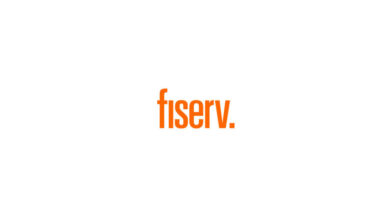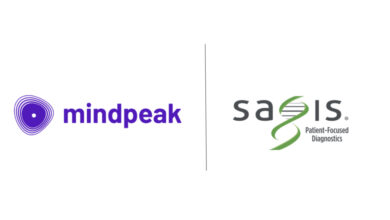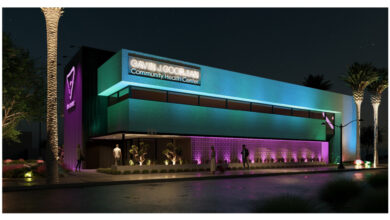Global Smart Shopping Cart Markets, 2020-2021 & Forecast to 2025:Growing Consumer Preference for Express Retail Self-checkout Counters – ResearchAndMarkets.com

DUBLIN–(BUSINESS WIRE)–The “Global Smart Shopping Cart Market (2020-2025) by Type, Technology, Application, Sales, Geography, Competitive Analysis and the Impact of Covid-19 with Ansoff Analysis” report has been added to ResearchAndMarkets.com’s offering.
The Global Smart Shopping Cart Market is estimated to be USD 931.22 Mn in 2020 and is expected to reach USD 2,913 Mn by 2025, growing at a CAGR of 25.62%.
Market Dynamics
Key factors, such as growing preference for express retail self-checkout counters along with the growth in IoT and connected devices have led to the progress in the automated billing procedures at various supermarkets.
These factors have contributed to the growth of the global smart shopping cart Market. Moreover, the need to constantly innovate and develop a better way to ensure customer engagement throughout the customer shopping journey has further facilitated the growth of this market.
However, the high cost of the smart cart, malfunctioning due to sensor issues in the carts and limited capabilities in the major deployements is restraining the growth of the market.
Market Segmentation
- The Global Smart Shopping Cart Market is segmented further based on Type, Technology, Application, Sales, and Geography.
- By Type, the market is classified as an open-source shopping cart, hosted shopping cart, and CMS+ e-commerce plugin. Amongst all, the hosted shopping cart segment is estimated to hold the highest market share.
- By Technology, the market is classified as Zigbee, RFIDs, and Bar Codes. Amongst all, the RFID segment is estimated to hold the highest market share.
- By Application, the market is classified as supermarkets, Shopping Malls, and others. Amongst the two, the shopping mall is estimated to hold the highest market share during the forecast period.
- By Sales, the market is classified as direct and distributed. Amongst the two, the direct sales segment is estimated to hold the highest market share.
- By Geography, North America is projected to lead the market.
Recent Developments
- Kroger, one of the largest retailer has partnered with an Artificial Intelligence (AI) firm Caper for deploying computer vision-enabled shopping car in Cincinnati, US – 29th January 2021
- Amazon is launching a smart grocery cart known as the “dash cart” that uses cameras, sensors to detect and log items further reducing the process involved in the traditional logout process. – 14th July 2020
Company Profiles
Some of the companies covered in this report are Oracle, Engage In-Store, SK Telecom, Shanghai Qixin Automation Systems Co. Ltd, Microsoft Corp, V-Mark, Toshiba, Compaq Computer Corp, Media Cart Holdings, Inc., IBM Corp, and Fujitsu Limited, etc.
Report Highlights:
- A complete analysis of the market, including parent industry
- Important market dynamics and trends
- Market segmentation
- Historical, current, and projected size of the market based on value and volume
- Market shares and strategies of key players
- Recommendations to companies for strengthening their foothold in the market
Key Topics Covered:
1 Report Description
2 Research Methodology
3 Executive Summary
4 Market Overview
4.1 Introduction
4.2 Market Dynamics
4.2.1 Drivers
4.2.1.1 Growth in IoT and automated billing processes
4.2.1.2 Growing preference for express retail self-checkout counters
4.2.1.3 Growing need for enhancing customer shopping journey
4.2.1.4 Increasing demand for in-store advertising and communications system in cart display devices
4.2.2 Restraints
4.2.2.1 Limited adoption among retailers due to high cost and malfunctioning
4.2.2.2 Limited capabilities in the majority of deployments
4.2.3 Opportunities
4.2.3.1 Emergence of autonomous retail technology
4.2.3.2 Growing availability of multiple payment options
4.2.3.3 Integration of AI in smart cart
4.2.3.4 Rising participation of start-ups in the development of smart carts
4.2.4 Challenges
4.2.4.1 Data privacy issues
4.2.4.2 Limited profitability
4.3 Trends
5 Market Analysis
5.1 Porter’s Five Forces Analysis
5.2 Impact of COVID-19
5.3 Ansoff Matrix Analysis
6 Global Smart Shopping Cart Market, By Type
6.1 Introduction
6.2 Open source Shopping Cart
6.3 Hosted Shopping Cart
6.4 CMS+ E-Commerce Plugin
7 Global Smart Shopping Cart Market, By Technology
7.1 Introduction
7.2 Zigbee
7.3 RFIDs
7.4 Bar Codes
8 Global Smart Shopping Cart Market, By Application
8.1 Introduction
8.2 Supermarket
8.3 Shopping Malls
8.4 Others
9 Global Smart Shopping Cart Market, By Sales
9.1 Introduction
9.2 Direct
9.3 Distributor
10 Global Smart Shopping Cart Market, By Geography
11 Competitive Landscape
11.1 Competitive Quadrant
11.2 Market Share Analysis
11.3 Competitive Scenario
11.3.1 Mergers & Acquisitions
11.3.2 Agreement, Collaborations, & Partnerships
11.3.3 New Product Launches & Enhancements
11.3.4 Investments & Funding
12 Company Profiles
- Fujitsu Ltd.
- Toshiba Corp.
- Microsoft Corp.
- V-Mark Enterprise Limited
- SK Telecom Co. Ltd.
- Oracle Corp.
- Compaq Computer Corp.
- Media Cart Holdings Inc.
- The Japan Research Institute Ltd.
- Engage In-Store
- Shanghai Qixin Automation Systems Co, Ltd
- IBM Corp
- Caper Inc
- Veeve Inc.
- Tracxpoint, Inc
- Amazon
- Retail AI, inc
- Focal Systems Inc
- Klever Kart Inc
- Smart Cart SA
- Mitsui and Co Ltd
For more information about this report visit https://www.researchandmarkets.com/r/16v8yy
Contacts
ResearchAndMarkets.com
Laura Wood, Senior Press Manager
[email protected]
For E.S.T Office Hours Call 1-917-300-0470
For U.S./CAN Toll Free Call 1-800-526-8630
For GMT Office Hours Call +353-1-416-8900



